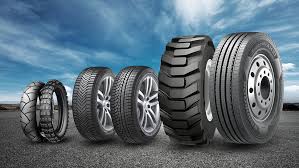Tire Balance: A Comprehensive Guide to Smooth and Safe Driving

Tire balance is one of the most critical aspects of vehicle maintenance, yet it’s often overlooked. Ensuring your tires are balanced is not just about comfort but also about safety, efficiency, and saving money in the long run. This detailed guide will explain everything you need to know about tire balance, including its importance, how it’s done, and the signs that indicate you might need it.
What Is Tire Balance?
Tire balance refers to the process of distributing the weight of the tire and wheel assembly evenly. When your tires are perfectly balanced, they rotate smoothly without causing any vibrations. However, if there’s even a small difference in weight, it can lead to shaking, uneven tire wear, and other issues.
Over time, tires can become unbalanced due to:
- Regular driving on uneven roads.
- Hitting potholes or curbs.
- Normal wear and tear.
- Uneven tread wear.
Why Is Tire Balance Important?
Tire balance impacts multiple aspects of your vehicle’s performance. Here’s why it’s essential:
- Enhanced Safety
Unbalanced tires can make your car harder to control, especially at high speeds. Vibrations from imbalanced tires can affect handling, increasing the risk of accidents. - Longer Tire Life
Balanced tires wear evenly, which means you won’t need to replace them as often. Uneven wear can lead to bald spots, reducing the lifespan of your tires. - Improved Fuel Efficiency
Imbalanced tires increase rolling resistance, making your car work harder to move forward. This leads to higher fuel consumption, costing you more at the pump. - Smoother Ride
Vibrations from unbalanced tires can make your drive uncomfortable. Balancing eliminates these vibrations, ensuring a smooth and enjoyable ride. - Reduced Stress on Your Vehicle
Imbalanced tires can put extra stress on your vehicle’s suspension, steering, and other components, leading to costly repairs down the line.
Signs Your Tires Need Balancing
It’s essential to recognize when your tires might be out of balance. Common signs include:
- Vibrations While Driving
Feeling vibrations in the steering wheel, seat, or floor of your car, especially at higher speeds, is a clear sign of unbalanced tires. - Uneven Tire Wear
If you notice that certain parts of your tire tread are wearing out faster than others, it could be due to imbalance. - Noisy Tires
Unbalanced tires can produce unusual sounds, such as humming, thumping, or buzzing. - Poor Handling
Your car may feel unstable or pull to one side if the tires are not balanced.
If you experience any of these symptoms, it’s time to get your tires checked by a professional.
The Tire Balancing Process
Tire balancing is a straightforward procedure carried out by trained technicians using specialized equipment. Here’s how it works:
- Inspection
The technician first inspects the tire and wheel for visible damage, uneven tread wear, or debris lodged in the tread. - Mounting on the Balancing Machine
The tire and wheel assembly is mounted on a balancing machine. The machine spins the assembly and detects any areas where the weight is uneven. - Adding Weights
Small counterweights are attached to the rim to balance the tire. These weights compensate for the uneven distribution of weight. - Re-Testing
The assembly is spun again to ensure the added weights have corrected the imbalance. - Reinstallation
The balanced tire is then reinstalled on the vehicle, and the technician may perform a test drive to confirm the issue is resolved.
How Often Should You Balance Your Tires?
Tire balancing isn’t something you need to do frequently, but there are specific times when it’s necessary:
- Every 5,000 to 6,000 Miles
This is the general recommendation and aligns with most tire rotation schedules. - When Installing New Tires
New tires should always be balanced to ensure they perform correctly. - After a Repair or Impact
If you’ve had a flat tire repaired or hit a pothole or curb, it’s a good idea to check the balance. - When You Notice Symptoms
If you feel vibrations, see uneven wear, or hear unusual noises, it’s time to get your tires balanced.
Tire Balance vs. Wheel Alignment: What’s the Difference?
Many people confuse tire balancing with wheel alignment, but they are different services:
- Tire Balancing ensures the weight of the tire and wheel assembly is evenly distributed for smooth rotation.
- Wheel Alignment adjusts the angles of the wheels to ensure they are parallel to each other and perpendicular to the road.
Both services are crucial for maintaining your car’s performance and safety.
DIY Tire Balancing: Can You Do It Yourself?
While it’s possible to check for obvious signs of imbalance, tire balancing requires specialized equipment and expertise. DIY attempts are not recommended, as improper balancing can worsen the problem or even compromise your safety.
Cost of Tire Balancing
Tire balancing is an affordable service, typically costing between $15 and $50 per tire. This small investment can save you money in the long run by preventing uneven wear and reducing fuel consumption.
How to Prevent Tire Imbalances
Here are some tips to keep your tires balanced and in good condition:
- Drive Carefully
Avoid potholes, curbs, and rough roads when possible. - Maintain Proper Tire Pressure
Check your tire pressure regularly and keep it at the manufacturer’s recommended level. - Rotate Your Tires
Rotating your tires regularly helps ensure even wear. - Get Regular Inspections
Schedule regular check-ups to catch potential issues early.
Conclusion
Tire balance plays a vital role in your vehicle’s safety, comfort, and efficiency. Regularly balancing your tires ensures a smoother ride, longer tire life, and reduced stress on your car.
If you notice vibrations, uneven wear, or any other signs of imbalance, don’t wait—visit a trusted professional to get your tires balanced. Keeping up with this simple maintenance task can save you time, money, and trouble while keeping you safe on the road.






